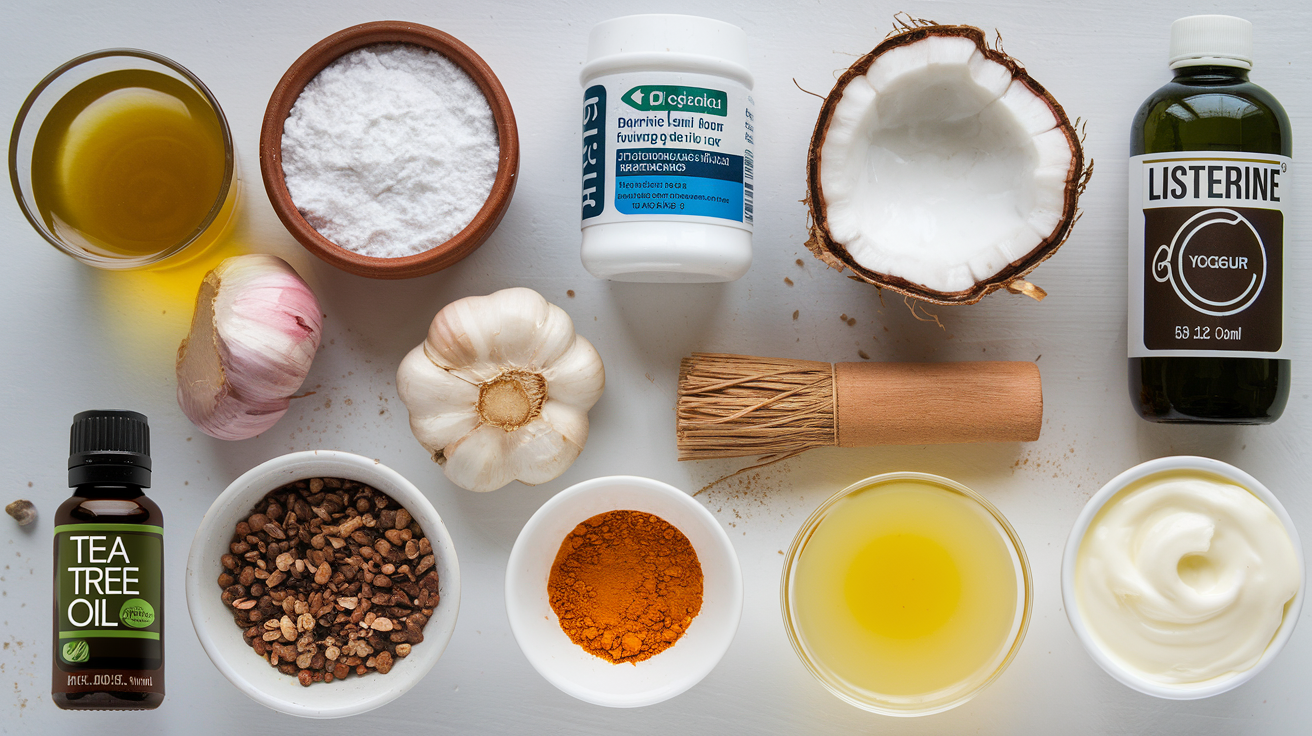What are Neurological Diseases affecting Brain Health?
Neurological Diseases Affecting Brain Health
1. Alzheimer’s Disease
Alzheimer’s disease is a progressive neurodegenerative disorder that primarily affects memory, thinking, and behavior. Characterized by the accumulation of amyloid plaques and neurofibrillary tangles in the brain, Alzheimer’s leads to the death of brain cells and a subsequent decline in cognitive function. Early symptoms include memory loss and confusion, gradually progressing to severe impairment in daily functioning and independence.
2. Parkinson’s Disease
Parkinson’s disease is a chronic and progressive movement disorder resulting from the degeneration of dopamine-producing neurons in the brain. Key symptoms include tremors, muscle rigidity, bradykinesia (slowness of movement), and postural instability. Parkinson’s disease can also lead to cognitive changes, depression, and sleep disturbances, significantly impacting the quality of life.
3. Multiple Sclerosis (MS)
Multiple sclerosis (MS) is an autoimmune disease where the immune system attacks the protective myelin sheath covering nerve fibers, causing communication issues between the brain and the rest of the body. Symptoms of MS vary widely and can include fatigue, difficulty walking, numbness, and vision problems. Over time, MS can lead to permanent damage or deterioration of the nerves.
4. Amyotrophic Lateral Sclerosis (ALS)
Amyotrophic lateral sclerosis (ALS), also known as Lou Gehrig’s disease, is a progressive neurodegenerative disease that affects nerve cells in the brain and spinal cord, leading to the loss of muscle control. Early symptoms of ALS include muscle weakness, twitching, and slurred speech. As the disease advances, it results in the loss of the ability to move, speak, eat, and breathe.
5. Huntington’s Disease
Huntington’s disease is a hereditary neurodegenerative disorder caused by a genetic mutation. It leads to the progressive breakdown of nerve cells in the brain, resulting in motor dysfunction, cognitive decline, and psychiatric symptoms. Early signs include mood swings, depression, and minor involuntary movements, eventually progressing to severe physical and mental impairments.
Signs and Symptoms of Neurological Diseases
1. Alzheimer’s Disease
Signs and Symptoms: – Memory Loss: Early signs include forgetting recent events, conversations, or names, which progressively worsens. – Confusion: Difficulty understanding time, dates, and places. – Disorientation: Getting lost in familiar places or wandering. – Language Problems: Trouble finding the right words, following conversations, or repeating oneself. – Impaired Judgment: Difficulty making decisions or problem-solving. – Mood and Behavior Changes: Increased anxiety, depression, irritability, or apathy. – Difficulty Performing Familiar Tasks: Challenges in completing daily activities like cooking or managing finances.
2. Parkinson’s Disease
Signs and Symptoms: – Tremors: Shaking that often begins in the hands or fingers. – Bradykinesia: Slowness of movement, making simple tasks take longer. – Muscle Rigidity: Stiffness in the limbs and trunk, limiting range of motion. – Postural Instability: Difficulty with balance and coordination, leading to falls. – Masked Facial Expression: Reduced ability to express emotions through facial movements. – Speech Changes: Speaking softly, quickly, or slurring words. – Writing Changes: Writing may become small and cramped (micrographia).
3. Multiple Sclerosis (MS)
Signs and Symptoms: – Fatigue: Extreme tiredness that doesn’t improve with rest. – Numbness and Tingling: Often occurring in the limbs or face. – Muscle Weakness: Weakness in one or more limbs. – Vision Problems: Blurred or double vision, partial or complete vision loss. – Dizziness and Vertigo: Feeling off-balance or lightheaded. – Bladder and Bowel Dysfunction: Urgency, frequency, or incontinence. – Cognitive Changes: Problems with memory, attention, and concentration. – Spasticity: Stiff muscles and involuntary muscle spasms.
4. Amyotrophic Lateral Sclerosis (ALS)
Signs and Symptoms: – Muscle Weakness: Often begins in the hands, feet, or limbs. – Twitching and Cramping: Fasciculations (muscle twitches) and cramps, especially in the hands and feet. – Slurred Speech: Difficulty speaking clearly, which may progress to complete loss of speech. – Difficulty Swallowing: Dysphagia, leading to choking or aspiration. – Loss of Muscle Control: Gradual loss of voluntary motor control, affecting movement, speaking, eating, and breathing. – Weight Loss: Muscle wasting and loss of muscle mass.
5. Huntington’s Disease
Signs and Symptoms: – Movement Disorders: Involuntary jerking or writhing movements (chorea), muscle problems such as rigidity or muscle contracture (dystonia), and slow or abnormal eye movements. – Cognitive Decline: Difficulty organizing, prioritizing, or focusing on tasks; lack of flexibility or tendency to get stuck on a thought, behavior, or action. – Psychiatric Disorders: Depression, irritability, social withdrawal, insomnia, fatigue, and suicidal thoughts. – Impaired Coordination: Trouble with walking, balance, and fine motor skills. – Speech and Swallowing Difficulties: Difficulty with speaking and swallowing, leading to choking or aspiration. – Personality Changes: Mood swings, aggressive outbursts, and apathy.
Enhance Your Brain Health Today! Discover the Power of Neurological Supplements.
Causes of some common neurological diseases:
- Alzheimer’s Disease:
- Amyloid Plaques and Tau Tangles: Alzheimer’s is characterized by the buildup of amyloid plaques (abnormal clusters of protein fragments) and tau tangles (twisted fibers of tau protein) in the brain, which disrupt neuronal communication and lead to cell death.
- Genetic Factors: Certain genetic mutations, such as those in the genes for amyloid precursor protein (APP) and presenilin 1 and 2 (PSEN1 and PSEN2), can increase the risk of developing Alzheimer’s.
- Age: Advancing age is the primary risk factor for Alzheimer’s disease, with the likelihood of developing the condition increasing significantly after the age of 65.
- Parkinson’s Disease:
- Loss of Dopamine-Producing Neurons: Parkinson’s disease involves the progressive loss of dopamine-producing neurons in the substantia nigra region of the brain. Dopamine is essential for coordinating smooth and balanced muscle movement.
- Genetic Factors: While most cases of Parkinson’s disease are sporadic, certain genetic mutations, such as those in the LRRK2 and SNCA genes, can increase susceptibility.
- Environmental Factors: Exposure to certain toxins and environmental factors, such as pesticides and herbicides, may increase the risk of developing Parkinson’s disease.
- Multiple Sclerosis (MS):
- Autoimmune Reaction: MS is an autoimmune disorder where the immune system mistakenly attacks the myelin sheath, a protective covering that surrounds nerve fibers in the central nervous system (brain and spinal cord).
- Genetic Susceptibility: Certain genetic factors, such as variations in the human leukocyte antigen (HLA) complex, can increase susceptibility to developing MS.
- Environmental Triggers: Viral infections, low vitamin D levels, and smoking are among the environmental factors that may trigger or exacerbate MS symptoms.
- Stroke:
- Ischemic Stroke: The most common type of stroke occurs when a blood clot blocks or narrows an artery leading to the brain, causing a sudden interruption of blood flow and oxygen supply (ischemia).
- Hemorrhagic Stroke: This type of stroke results from a burst blood vessel in the brain, leading to bleeding (hemorrhage) and subsequent damage to surrounding brain tissue.
- Risk Factors: High blood pressure, diabetes, smoking, obesity, and high cholesterol levels are significant risk factors for stroke.
- Epilepsy:
- Abnormal Brain Activity: Epilepsy is characterized by recurrent seizures due to abnormal electrical activity in the brain. Seizures can vary widely in their presentation and severity.
- Causes: In many cases, the cause of epilepsy is unknown (idiopathic). However, it can also result from brain injury, stroke, brain tumors, infections, genetic factors, or developmental disorders.
- Amyotrophic Lateral Sclerosis (ALS):
- Motor Neuron Degeneration: ALS involves the progressive degeneration of motor neurons in the brain and spinal cord, which control voluntary muscle movements.
- Genetic Factors: Approximately 5-10% of ALS cases are familial, meaning they are inherited due to mutations in genes such as C9orf72, SOD1, and others.
- Environmental Factors: Exposure to certain toxins or traumatic brain injuries may contribute to the development of ALS, although the exact mechanisms are not fully understood.
- Migraine:
- Neurovascular Disorder: Migraine is a complex neurological condition characterized by recurrent episodes of severe headache, often accompanied by other symptoms such as nausea, sensitivity to light, and sound.
- Triggers: Migraine attacks can be triggered by various factors, including hormonal changes, certain foods or drinks, stress, sensory stimuli, and changes in sleep patterns.
In today’s fast-paced world, maintaining optimal brain health is more crucial than ever. As we age, our cognitive abilities may decline, and neurological diseases such as Alzheimer’s and Parkinson’s become more prevalent. Understanding the role of dietary supplements in supporting brain function is paramount. This article explores how specific supplements can aid in combating neurological diseases and promoting healthy brain aging.
The brain is the body’s control center, responsible for processing information, coordinating movement, regulating emotions, and enabling memory formation. However, aging and certain neurological conditions can impair these functions, leading to cognitive decline and reduced quality of life. Fortunately, dietary supplements offer a promising avenue for enhancing brain health and mitigating the impact of neurological diseases.
Check out for the comprehensive guide on
Key Neurological Diseases and Brain Aging
Neurological diseases affect millions worldwide, significantly impacting quality of life. Alzheimer’s disease, characterized by progressive memory loss and cognitive decline, and Parkinson’s disease, marked by motor impairments and cognitive changes, are among the most prevalent. Brain aging, a natural process, can exacerbate cognitive decline if not managed effectively.
Alzheimer’s disease, in particular, is a major concern as it affects memory, thinking, and behavior. As the most common cause of dementia, it progressively worsens over time and currently has no cure. Parkinson’s disease, on the other hand, affects movement, causing tremors, stiffness, and balance problems. Both diseases are associated with changes in the brain, including the formation of plaques and tangles in Alzheimer’s and the loss of dopamine-producing neurons in Parkinson’s.

Role of Dietary Supplements
Dietary supplements play a crucial role in bolstering brain health by providing essential nutrients that support cognitive function. Supplements like Omega-3 fatty acids, known for their anti-inflammatory properties, have shown promise in reducing the risk of neurodegenerative diseases. Antioxidants such as Vitamin E and C contribute to neuronal protection against oxidative stress, a key factor in aging-related cognitive decline.
Enhance Your Brain Health Today! Discover the Power of Neurological Supplements.
Omega-3 fatty acids, found in abundance in fatty fish like salmon and mackerel, have been extensively studied for their neuroprotective properties. These essential fatty acids are integral to brain structure and function, influencing membrane fluidity, neurotransmitter signaling, and inflammatory responses. Research suggests that Omega-3 supplementation may reduce the risk of Alzheimer’s disease and slow cognitive decline in aging adults.
Antioxidants play a crucial role in combating oxidative stress, a process implicated in neurodegenerative diseases and aging-related cognitive decline. Vitamin E, found in nuts, seeds, and vegetable oils, acts as a potent antioxidant, protecting cell membranes from damage. Vitamin C, abundant in citrus fruits and leafy greens, scavenges free radicals and supports brain health by enhancing neurotransmitter synthesis and neuronal communication.
Scientific Evidence and Research
Research consistently underscores the efficacy of dietary supplements in mitigating neurological disorders. Studies highlighted in the article emphasize the neuroprotective effects of supplements like curcumin, found in turmeric, which exhibits anti-inflammatory and antioxidant properties beneficial for brain health. The biological mechanisms elucidated in these studies provide compelling evidence for the integration of supplements into neuroprotective strategies.
Curcumin, the active compound in turmeric, has gained attention for its potential therapeutic benefits in neurodegenerative diseases. Its anti-inflammatory properties help reduce brain inflammation, a common feature of Alzheimer’s disease and other neurological conditions. Moreover, curcumin enhances antioxidant defenses, scavenging free radicals and protecting neurons from oxidative damage. Clinical trials have shown promising results, suggesting that curcumin supplementation may improve cognitive function and quality of life in individuals with neurodegenerative diseases.
Popular Dietary Supplements
Several dietary supplements have gained prominence for their potential to enhance brain function. Vitamin B complex, essential for nerve function and neurotransmitter synthesis, supports cognitive performance. Minerals like Zinc and Magnesium play pivotal roles in neuronal communication and synaptic plasticity, vital for maintaining cognitive agility with age.
Vitamin B complex encompasses a group of water-soluble vitamins essential for neurological health. B vitamins, including B6, B12, and folic acid (B9), contribute to neurotransmitter production, DNA synthesis, and myelin formation. Deficiencies in B vitamins have been linked to cognitive impairments and neurodegenerative diseases, underscoring their importance in brain health maintenance.
Zinc and Magnesium are essential minerals that support brain function through various mechanisms. Zinc plays a crucial role in synaptic transmission, neurotransmitter release, and neurogenesis, influencing learning, memory, and mood regulation. Magnesium, involved in over 300 enzymatic reactions in the body, modulates synaptic plasticity and NMDA receptor function, critical for cognitive processes and memory formation.

Nutritional Strategies for Brain Health
In addition to supplements, adopting a nutrient-rich diet is pivotal for sustaining brain health. The Mediterranean diet, renowned for its abundance of fruits, vegetables, and healthy fats, has been linked to reduced cognitive decline. Incorporating foods rich in antioxidants and Omega-3s, such as berries and oily fish, provides synergistic benefits alongside supplementation.
The Mediterranean diet emphasizes whole, unprocessed foods that are rich in nutrients known to support brain health. Olive oil, a staple of the Mediterranean diet, contains monounsaturated fats and polyphenols that protect against oxidative stress and inflammation. Fruits and vegetables provide essential vitamins, minerals, and phytochemicals that promote neuronal function and reduce the risk of neurodegenerative diseases.
Berries, particularly blueberries and strawberries, are potent sources of antioxidants that combat oxidative stress and inflammation in the brain. These small fruits contain flavonoids, compounds with neuroprotective properties that enhance cognitive function and support brain aging. Including a variety of colorful fruits and vegetables in the diet ensures a diverse range of antioxidants and phytochemicals beneficial for brain health.
Safety and Considerations
While dietary supplements offer promising neuroprotective benefits, caution must be exercised. Potential interactions with medications and varying efficacy across individuals underscore the importance of consulting healthcare professionals before initiating supplement regimens. Maintaining transparency about supplement usage and adhering to recommended dosages mitigate potential risks.
Enhance Your Brain Health Today! Discover the Power of Neurological Supplements.
Individual responses to supplements can vary based on factors such as age, genetics, and overall health status. It is essential to prioritize safety by selecting supplements from reputable brands and verifying their quality through third-party testing. Healthcare professionals, including doctors and registered dietitians, can provide personalized recommendations based on individual health needs and goals.
Certainly! Here are the additional sections for the blog post on “Dietary Supplements in Neurological Diseases and Brain Aging”:
People Also Ask (PAA)
- What are the best dietary supplements for brain health?
- Explore Omega-3 fatty acids, antioxidants like Vitamin E and C, and minerals such as Zinc and Magnesium known for their neuroprotective benefits.
- Can dietary supplements prevent Alzheimer’s disease?
- While supplements like Omega-3 fatty acids and curcumin show promise in reducing risk factors, consult with healthcare professionals for personalized advice.
- How do antioxidants benefit brain health?
- Antioxidants combat oxidative stress, a contributing factor to neurodegenerative diseases, by neutralizing free radicals and protecting neurons.
- Are there dietary strategies besides supplements to support brain aging?
- Adopting a Mediterranean diet rich in fruits, vegetables, and healthy fats supports brain health alongside supplement use.
- What safety considerations should be taken with dietary supplements?
- Consult healthcare professionals before starting any supplement regimen to avoid interactions with medications and ensure optimal efficacy.
Health Disclaimer
The information provided in this blog post is for educational purposes only and should not be construed as medical advice. Consult healthcare professionals for personalized recommendations regarding supplement usage, particularly if you have existing medical conditions or concerns.
Conclusion
In conclusion, the integration of dietary supplements into neuroprotective strategies offers promising avenues for maintaining brain health and combating neurological diseases. By leveraging scientific insights into the neuroprotective properties of supplements like Omega-3 fatty acids, antioxidants, and essential minerals, individuals can proactively support cognitive function as they age.
The scientific evidence highlighted in this article underscores the efficacy of supplements in mitigating neurodegenerative processes such as oxidative stress and inflammation. Omega-3 fatty acids, in particular, play a crucial role in neuronal membrane integrity and neurotransmitter function, contributing to improved cognitive outcomes.
Furthermore, the Mediterranean diet serves as a synergistic approach to supplement use, providing a rich source of antioxidants and healthy fats that support brain health. Including a variety of fruits, vegetables, and Omega-3-rich foods in daily meals promotes overall cognitive vitality and reduces the risk of cognitive decline associated with aging.
It is essential to approach supplement usage with caution and seek guidance from healthcare professionals to ensure safety and efficacy. Individual responses to supplements may vary based on genetic predispositions, existing health conditions, and medication interactions. By maintaining transparency and adhering to recommended dosages, individuals can optimize brain health outcomes and enhance quality of life throughout the aging process.
Continued research and advancements in neurology hold promise for identifying novel therapeutic targets and personalized interventions tailored to individual brain health needs. Staying informed about the latest scientific findings and integrating evidence-based strategies into daily routines empower individuals to prioritize brain health and achieve optimal cognitive function at every stage of life.









This is exactly what I’ve been looking for! I’m always interested in natural ways to support my brain health. The omega-3 information is fascinating – I never realized just how important those fatty acids are. It might be time to invest in some wild salmon! Do you have any recommendations for multivitamins that are specifically formulated for brain health? I’d love to hear your thoughts!
As a dietitian, I always recommend food-first approaches to health, but this blog post does a great job of highlighting some supplements that can be helpful alongside a balanced diet. I especially liked the inclusion of magnesium, as many people don’t get enough of this essential mineral in their diet. It’s important to note that supplements can interact with medications, so always discuss any additions to your routine with your doctor. This post empowers readers to take charge of their brain health with evidence-based information!